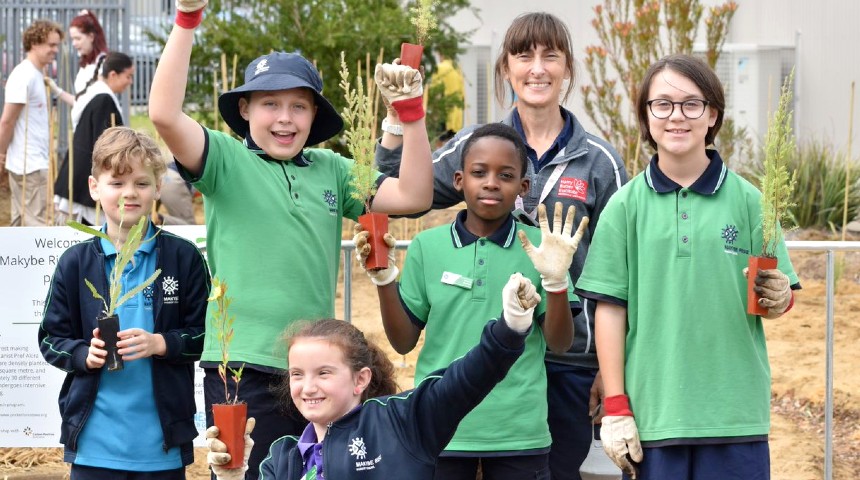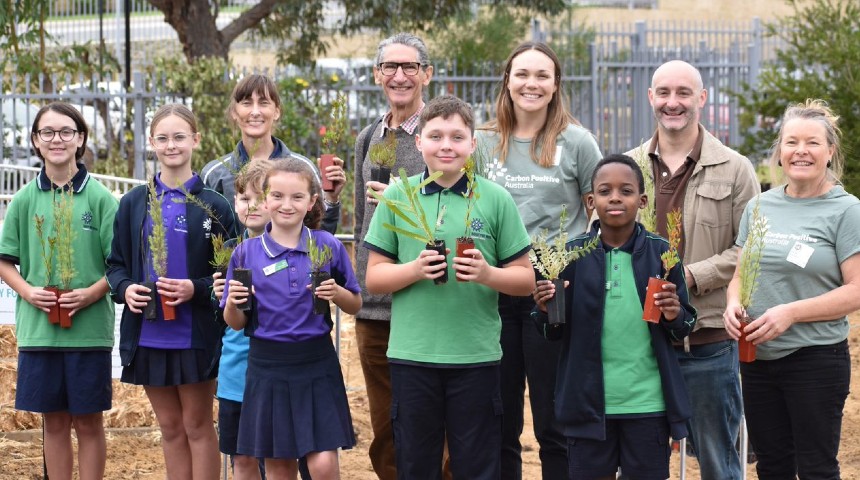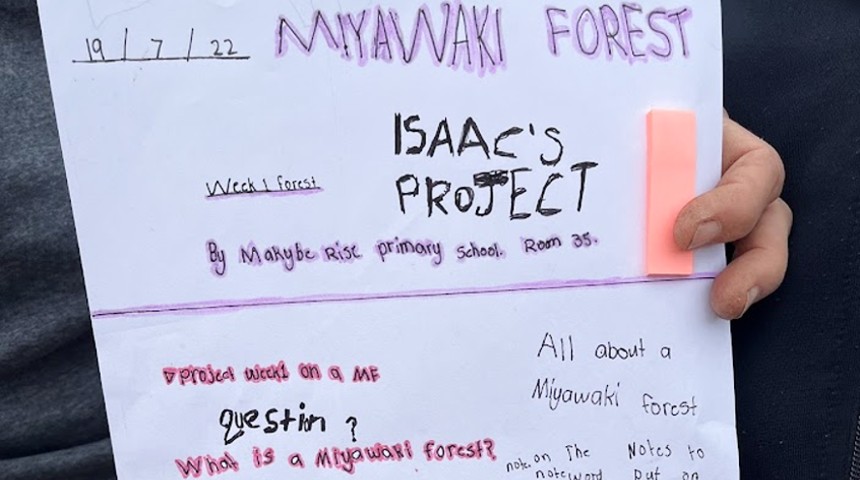
Sister City partnerships have been known to foster cultural awareness and grow business, but soon they’ll be helping a global community of students save the environment, thanks to a clever online initiative being developed.
Environmentally-conscious students from Western Australia will soon be connecting with their peers in the United States and Chile and share their journeys as they work to address climate change, one tree at a time.
The Sister Forest program is brainchild of Murdoch University research fellow, eco-warrior and forestmaker Dr Grey Coupland.
The idea was sparked by the success of her pocket forest outreach program, which uses the Miyawaki method in which small densely planted forests are created using locally indigenous species.
Partnering with Carbon Positive Australia and Miyawaki forest maker NGO SUGi to get the super dense forests in the ground, Dr Coupland said school students not only get their hands dirty to tackle climate change through the outreach program, they take monthly forest measurements to showcase impact, as well as having formal lessons in the outreach program on topics such as climate change and urban sustainability.

“Students work alongside me and learn how to plant and care for up to 30 native species in a small, less than (200 sqm) forest,” she said.
“Then month-by-month they collect data with me on plant growth rates, soil, air temperature and animal diversity which will contribute to our understanding of how well the Miyawaki method is suited to Australian conditions, and aid decisions on future urban revegetation programs.”
Dr Coupland devised the online pen-pal style program to give Western Australian students a platform to exchange these outcomes on a global scale, and to offer teachers a new climate change tool to add to their curriculum.
By linking their forests online, students can share their experiences and hopes about their forest, and how it may contribute to greening and biodiversity in their area.”
Students will be able to share data including plant growth rates, plant survival and animal biodiversity as well as upload photographs of their forests, animals, art work, poems and anything else they have created that is inspired by their forests.

“It’s also a great tool that teachers can use to help their students become global eco-warriors.”
Additionally, the platform will offer cultural exchange, allowing students to connect with forest pen-pals and meet other like-minded connections from other countries.
The hope is they will share videos with each other, so they can start a face-to-face conversation, get to know students in another country and make world-wide friends.”
An Australian first, Dr Coupland planted the first Miyawaki forest at a school in Australia at South Padbury Primary School in 2021.
She will plant six more forests before the end of August, including one in collaboration with the Department of Education’s Statewide Services and the first regional community forest at Brookton in the WA’s Wheatbelt.
The biodiversity trailblazer said she hopes the ‘Sister Forest program’ will inspire students to want to know more about environmental and climate action in other countries as well as their own.
“Ultimately the aim of the ‘Sister Forest program’ is to create a sense of unity and purpose - showing children that local environmental action is entirely possible,” she said.
“That they can be the drivers of change all around the world.”